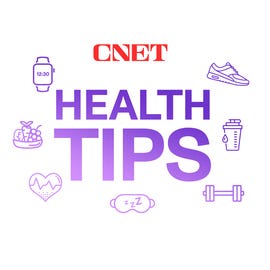Year after year, we come up with lofty New Year’s resolutions about how we want to do better when January rolls around. The lists include popular topics like losing weight, getting a new job, and stop drinking. If that last one is on your list of New Year’s resolutions 2023, we’re here to help you learn how to stop drinking (or at least cut back, if that’s what you want) this coming year.

According to the National Institute on Alcohol Abuse and Alcoholism, more than 14 million adults in the US have what is classified as an alcohol use disorder. The large number of Americans who drink to excess is why it is such a common New Year’s resolution, and studies show that about 25% of people who commit to quit drinking each year are successful. long-term. However, when it comes to how to stop drinking alcohol, it’s important to understand why you’re drinking in the first place, surround yourself with people who help you stop drinking, and celebrate your victories along the way. Here are some helpful tips to stop drinking.
For more health tips, check out this self care routine to sleep better and the The best foods for healthy kidneys..
How to make a quit drinking plan that works for you
There is no right way to stop drinking; it’s about figuring out what works for you and your lifestyle. And that starts with a plan. Here are some things to consider and practical steps you can take.
Examine your current relationship with alcohol
The first thing you have to do is take a step back and evaluate your habits. That means looking at your relationship with alcohol so you can understand why you drink, when you drink, and how much you drink.
Be aware of how much you drink: When drinking is part of your daily routine, you start to forget how much you’re actually consuming. It is essential to examine exactly how much alcohol you are drinking. Look at each drink as it is placed in front of you and count how many you are consuming in a day.
Identify the reasons you drink: Do you drink because you are bored? Do you drink with friends and family? Do you drink because you are sad? Do you drink because you just like the taste? These are all common reasons for consuming alcohol, and your next step in this process is to understand why you are drinking when you do. Start a journal to keep track of what you’re drinking and why and see if there are any patterns. This will also help you find new ways to satisfy a craving when it arises. If you find that you tend to have a glass of wine when you’re feeling down, you’ll know what to do the next time those feelings come up.
Think about why you want to stop drinking: Having a goal in mind will help you jumpstart your journey. Why do you want to stop drinking? If your reason is simply that you want to do it, that’s fine! Just make sure you know why you want to cut back so you can keep it in mind as you go through this process. It’s never easy to give up something, but knowing why you’re doing it will help you stay on track.
Learn how alcohol affects your body
Alcohol can wreak havoc on your body. According to the NIAAA, alcohol affects you pretty much from head to toe. Alcohol can make it hard to think clearly, cause strokes or high blood pressure, lead to cirrhosis, and weaken your immune system. It can also interfere with your sleep, and poor sleep hygiene can lead to more health problemssuch as obesity and diabetes. Knowing all the negative effects alcohol has on your physical and mental health can help you understand why you’re better off without it.
set a goal
Goals can help keep you on track, but sometimes a big goal feels too out of reach. Consider setting smaller goals for yourself and celebrate them as you go. Instead of a general goal of “I want to stop drinking,” start by telling yourself that you are going to stop drinking. Maybe you only drink on the weekends for now. Maybe you’ll do a dry January to really kick-start the plan. American Addiction Centers recommends no more than one drink a day for women and two drinks a day for men, so keep that in mind when setting a goal to cut back.
Create a support system
It’s much harder to do this alone, so reach out to people you trust. Everyone needs a cheerleader in their corner to support them.
Let your friends and family know your goals: Once you have a plan in place for your goal, tell your close friends and family about it, as long as they are the kind of people who will support you. Tell them why you have decided to stop drinking and let them know how they can help you. If you want them to hold you accountable, let them know and decide how they can best help you. You might even be able to convince some of your people to join you on this trip, which can make it more bearable.
Create your community: Finding like-minded people can also help you succeed. There are many online communities of people who have stopped drinking that will welcome you and help you stay on track. You can also find a local Alcoholics Anonymous group for support, if you have one nearby. And now is your chance to spend time with friends who are not drinkers and won’t tempt you; You might even find new friends or rekindle old friendships now that your priorities have changed.
Seek professional help: Talking to a medical professional, whether it’s your doctor or a therapist, can also be extremely beneficial. They will always help you find a healthier lifestyle and can provide you with resources, support, and any encouragement you need. Don’t be afraid to approach them with the topic as they are ready and willing to help you succeed.

Hinterhaus Productions/Getty Images
Have a plan for when you go out
It can be difficult to manage social situations as you cut back on alcohol, especially if you are around other people who drink or who are used to your drinking. As with any part of this process, go with a plan. If you’re going out with close friends or family you’re comfortable with, let them know ahead of time that you’re not drinking. If you’re going to a function that doesn’t give you a chance to say something ahead of time and you don’t want to attract attention, you can go directly to the bar or a server and ask for a non-alcoholic drink. It’s easier to mix with a glass in hand, even if it’s just a Coke. And if you find yourself in a situation where someone offers you a drink, politely decline. Most of the time, people will back off and if they don’t, hold your ground and say you’re not drinking tonight. You don’t owe anyone your reasoning behind why you abstain.
Out of sight, out of mind
If you’re really committed to reducing, one of the best things you can do is get alcohol out of your house. If it’s out of reach, you’ll be less tempted to drink. This is also a good opportunity to find alternatives to some of your favorite drinks. You could try a little mixology and create mocktails to drink at home so you still feel like you’re having something fancy, or you can find an alternative drink that will satisfy you, whether it’s a soda, iced tea, or something similar. Be prepared to keep these things on hand for when you get a craving and can nip it in the bud.
Plan for side effects of quitting alcohol
Depending on what your drinking habit was like, you may experience fewer or more withdrawal symptoms as you cut back. Symptoms include headaches, anxiety, tremors or shaking, insomnia, fatigue, mood swings, gastrointestinal disturbances, palpitations, increased blood pressure or heart rate, hyperthermia, abnormal rapid breathing, hallucinations, and seizures. Fortunately, these withdrawal symptoms shouldn’t last long (about a week), but listen to your body in case anything feels off during this time. Try to focus on your end goal, and don’t be afraid to call your doctor if you feel something isn’t right.
celebrate your victories
Give yourself credit where it’s due as you begin to reach your alcohol-free milestones. Celebrating helps keep you motivated, so be sure to reward yourself for goals achieved. Consider setting up a rewards chart with the things you really want, perhaps a dinner at a new restaurant or a pair of shoes you’ve been eyeing. Set goals for each reward and enjoy them when you reach them. You might even go all out and reward yourself with something big with a major milestone like a year without alcohol – a vacation sounds lovely!
The information contained in this article is for educational and informational purposes only and is not intended to be health or medical advice. Always consult a physician or other qualified healthcare provider regarding any questions you may have about a medical condition or healthcare goals.
Source: news.google.com